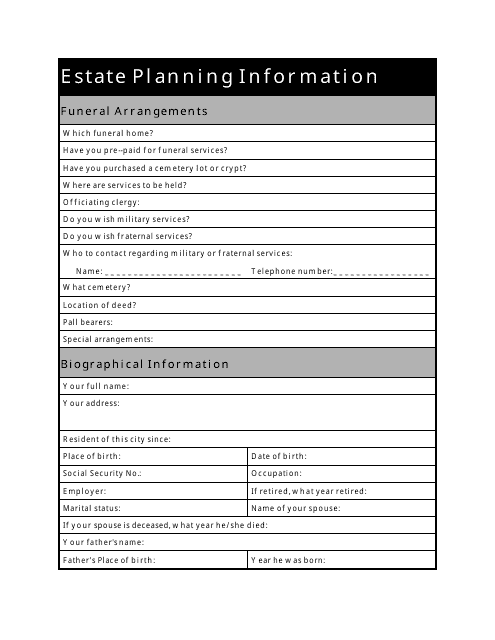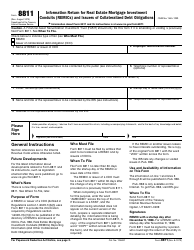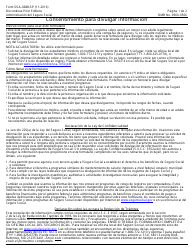Estate Planning Information Form - Oregon
Estate Planning Information Form is a legal document that was released by the Oregon State Bar - a government authority operating within Oregon.
FAQ
Q: What is estate planning?
A: Estate planning involves making decisions about how your assets and affairs will be handled after your death.
Q: Why is estate planning important?
A: Estate planning allows you to protect your assets, provide for your loved ones, and ensure your wishes are carried out.
Q: What are some common estate planning documents?
A: Common estate planning documents include wills, trusts, powers of attorney, and advance healthcare directives.
Q: Do I need an attorney for estate planning?
A: While not required, it is often recommended to consult with an attorney experienced in estate planning to ensure your wishes are properly documented.
Q: What is a will?
A: A will is a legal document that specifies how your assets will be distributed after your death.
Q: What is a trust?
A: A trust is a legal entity that holds and manages assets for the benefit of designated beneficiaries.
Q: What is a power of attorney?
A: A power of attorney is a legal document that grants someone the authority to act on your behalf in managing your affairs.
Q: What is an advance healthcare directive?
A: An advance healthcare directive, also known as a living will, allows you to specify your healthcare preferences in case you become unable to communicate.
Q: What happens if I don't have an estate plan?
A: If you don't have an estate plan, your assets may be distributed according to state laws, and your wishes may not be honored.
Q: Can estate planning help minimize taxes?
A: Yes, estate planning can include strategies to minimize estate taxes and ensure more of your assets go to your intended beneficiaries.
Form Details:
- The latest edition currently provided by the Oregon State Bar;
- Ready to use and print;
- Easy to customize;
- Compatible with most PDF-viewing applications;
- Fill out the form in our online filing application.
Download a printable version of the form by clicking the link below or browse more documents and templates provided by the Oregon State Bar.










